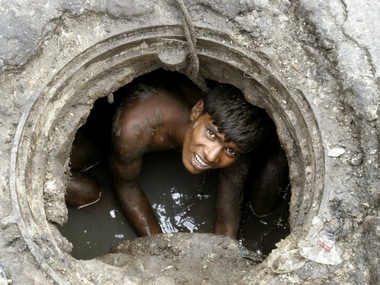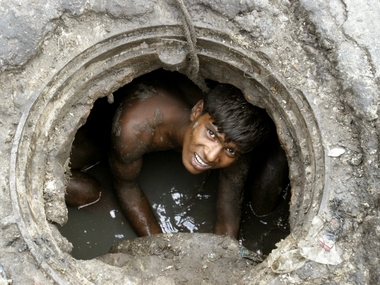Editor’s note: This is part of a seven-part series on manual scavenging in India . It examines the practice from a socio-political point of view. While passing through a neighbourhood once, I overheard some people fighting and calling each other names. The one thing that struck me the most was the frequent use of the term ‘watul.’ I couldn’t resist but to stop and listen to them carefully. None of these people were from the Watal community of Kashmir, but were using the word as an epithet. In common parlance, Kashmiris use the terms ‘watal khaslat’ (quality) and ‘watal nasil’ (lineage) to heap scorn on each other. The word ‘watul’ is a generic term in Kashmiri language for the Watal community or the Kashmiri scavenging community. Although, they are officially known as Sheikhs, but for the Kashmiri people it seems they will always remain ‘watals’ or ‘watul.’ Generally, Kashmiris do not accept the fact that untouchability or caste system is present their society. The caste system is regarded as part of the Hindu religion. However, ask the Sheikhs and they will tell you the caste system is very much present in Kashmiri society, and so is untouchability. The Sheikhs base their claim on the fact that people from dominant castes like Sayyids, upper caste Sheikhs like Pirs, Shahs and Muftis, the upper caste Greest community (land owners) and even wealthy Nangaars (craftsmen) do not enter their homes or share their food. [caption id=“attachment_6794011” align=“alignleft” width=“380”]  Representational image of manual scavenging in India. News18[/caption] Sheikhs often live in ghettos and say those from the upper castes rarely visit. These ghettos are usually called Sheikh Mohalla, Sheikhpura, Mochi Mohalla or Watal basti. So deep is the bias that people openly observe untouchability and caste system in the matters of marriages and food sharing, but deny its existence as it runs contrary to their faith of Islam, which is largely based on the principle of egalitarianism. No doubt, Sheikhs have been associated with the manual scavenging in the past and even now most of them work as sweepers and cleaners, but that does not prevent them from exploring new opportunities. Sheikhs are enthusiastic about the future of their children while seeking to change the social perception about themselves. They educate their children knowing well that there is a huge competition in the job market and with no reservation for them, like the Scheduled Castes, it is very difficult to find work. There is, however, a preconceived notion in Kashmiri society that the Sheikhs are meant to ‘clean dirt from society’. Ironically, Sheikhs too think that “cleaning toilets is their job” and no other community is supposed to do it. Sheikhs prefer to socialise with their own. With increasing poverty and job opportunities few and far between, they feel secure with their own and in times of adversity, share resources. Socio-economically, Sheikhs are equivalent to Dalits. Both communities have suffered discrimination and lag behind other communities when it comes indicators such as finances, jobs, education, standard of living and health. But the one thing that is remarkable about the Sheikh community is their self-confidence and positive attitude. As far as marriage is concerned, every community in Kashmir prefers to marry their children into upper caste families or with their counterparts. Any marriage to a ’lesser community’ is frowned upon (though in recent times the financial status of the family has taken precedence). But the Sheikhs, who marry within their own caste, or their equivalent, have proved to be an exception. In fact, they prefer to keep marriage within the community, citing a deep bias against their community and the fear that their daughters would suffer abuse (the Sheikhs do not allow their women to work as manual scavengers and educate their daughters as they would their sons). Kashmiris often ignore uncomfortable questions when talking about the Sheikhs. For example, if the Sheikhs are discriminated against on merely the basis of their profession, then why are those who leave their traditional occupation not treated at par with other communities? Why do people hesitate to enter their homes, even those who manage to achieve economic success? With the focus in the Valley on the ongoing conflict, the Sheikhs and their troubles have been relegated to the background. But these questions must be answered.
Ask the Sheikhs and they will tell you the caste system is very much present in Kashmiri society, and so is untouchability.
Advertisement
End of Article


)

)
)
)
)
)
)
)
)



